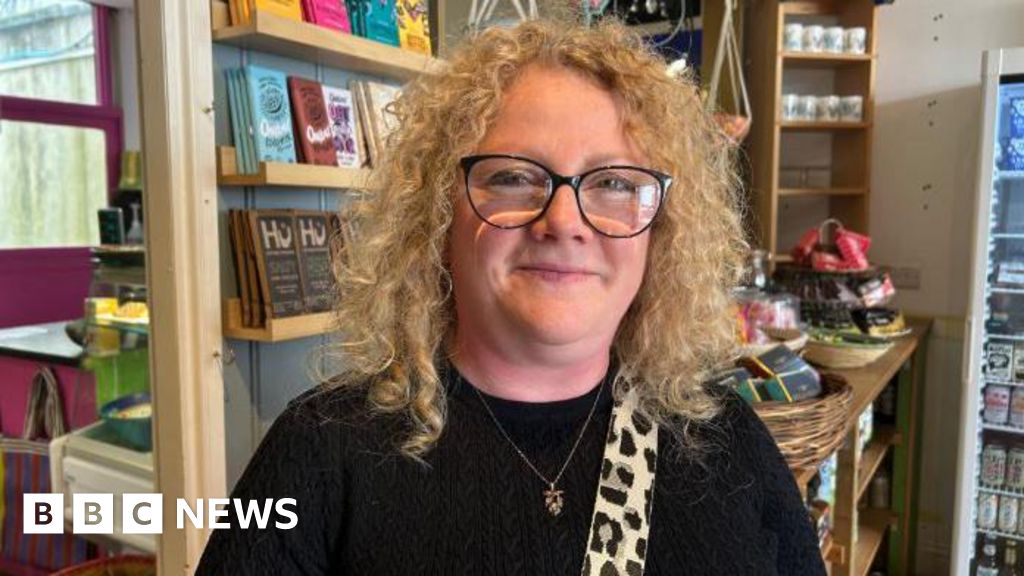Health
Wales Launches Cash Cards for Gluten-Free Food Access

Residents in Wales with gluten intolerance will soon receive debit-style cards preloaded with funds to purchase gluten-free food. This initiative, a first for the UK, is set to roll out later this year as a more flexible alternative to the existing prescription model that allows individuals with conditions like coeliac disease to obtain gluten-free products from pharmacies.
The new cards aim to address the financial burden faced by those affected by gluten intolerance. According to a report by Coeliac UK, a gluten-free diet can increase food expenses by an average of 35%. This is particularly significant for the estimated one in 100 people diagnosed with coeliac disease, a condition where the body’s immune system reacts adversely to gluten, leading to symptoms such as bloating, vomiting, and diarrhea.
The scheme was piloted in the Hywel Dda health board area, where participants like Cherylee Barker, 54, from Narberth, received £42 every three months, amounting to £14 per month. Barker noted that this support “scratches the surface” of the actual costs incurred in maintaining a gluten-free diet. She described the prior prescription method as “slightly embarrassing” and criticized the quality of the food available through that system.
Transforming Food Access for Coeliacs
The new cash card system will operate like a traditional chip and PIN bank card, usable at various retail outlets including supermarkets, shops, community pharmacies, and online stores. While the Welsh government has not disclosed specific amounts for individual allocations, officials indicated these would be tailored to each person’s needs and subject to regular reviews. The initiative is expected to be cost-neutral, meaning it will not add additional strain to the National Health Service (NHS) budget.
Health Minister Jeremy Miles emphasized that the aim is to “de-medicalise the supply of gluten-free foods.” He stated, “For people living with coeliac disease, following a strict gluten-free diet is not a lifestyle choice but a medical necessity.” This shift is designed to reduce the administrative burdens faced by general practitioners and pharmacies while enhancing access to necessary food options.
Consumers are likely to welcome this change, as gluten-free products typically carry a higher price tag. For instance, the average cost of an own-brand loaf of bread is £0.63, while a gluten-free equivalent can reach £2.26. Similarly, standard penne pasta averages £0.56 per 500g, compared to £1.22 for the lowest priced gluten-free option. These disparities illustrate the financial challenges faced by individuals relying on gluten-free diets.
Community Support and Future Implications
The initiative has garnered positive feedback from community members. Bethan Williams, 24, from Cardiff, noted that prescriptions often provide low-quality options, and the cash cards offer greater freedom for those with dietary restrictions. “Eating food and being able to eat a balanced diet isn’t a privilege; it’s something everyone should be entitled to,” she said.
Businesses like Plumvanilla Café and Deli in Narberth, which accepts the cash card, are adapting to meet the dietary needs of the community. Staff member Gemma Beere remarked on the increasing demand for gluten-free products, acknowledging the challenges of balancing inventory costs while minimizing waste.
Tristen Humphreys from Coeliac UK echoed the importance of recognizing a gluten-free diet as essential treatment for coeliac disease. He pointed out that supporting individuals with dietary needs not only promotes health but is also a cost-efficient approach for the NHS. He encouraged other regions in the UK to consider similar initiatives to improve access and support for those affected by gluten intolerance.
The introduction of cash cards for gluten-free food in Wales marks a significant advancement in dietary support for individuals with coeliac disease, fostering greater independence and improving access to essential nutritional options.
-

 Health3 months ago
Health3 months agoNeurologist Warns Excessive Use of Supplements Can Harm Brain
-

 Health3 months ago
Health3 months agoFiona Phillips’ Husband Shares Heartfelt Update on Her Alzheimer’s Journey
-

 Science1 month ago
Science1 month agoBrian Cox Addresses Claims of Alien Probe in 3I/ATLAS Discovery
-

 Science1 month ago
Science1 month agoNASA Investigates Unusual Comet 3I/ATLAS; New Findings Emerge
-

 Science4 weeks ago
Science4 weeks agoScientists Examine 3I/ATLAS: Alien Artifact or Cosmic Oddity?
-

 Entertainment4 months ago
Entertainment4 months agoKerry Katona Discusses Future Baby Plans and Brian McFadden’s Wedding
-

 Science4 weeks ago
Science4 weeks agoNASA Investigates Speedy Object 3I/ATLAS, Sparking Speculation
-

 Entertainment4 months ago
Entertainment4 months agoEmmerdale Faces Tension as Dylan and April’s Lives Hang in the Balance
-

 World3 months ago
World3 months agoCole Palmer’s Cryptic Message to Kobbie Mainoo Following Loan Talks
-

 Science4 weeks ago
Science4 weeks agoNASA Scientists Explore Origins of 3I/ATLAS, a Fast-Moving Visitor
-

 Entertainment4 months ago
Entertainment4 months agoLove Island Star Toni Laite’s Mother Expresses Disappointment Over Coupling Decision
-

 Entertainment3 months ago
Entertainment3 months agoMajor Cast Changes at Coronation Street: Exits and Returns in 2025









